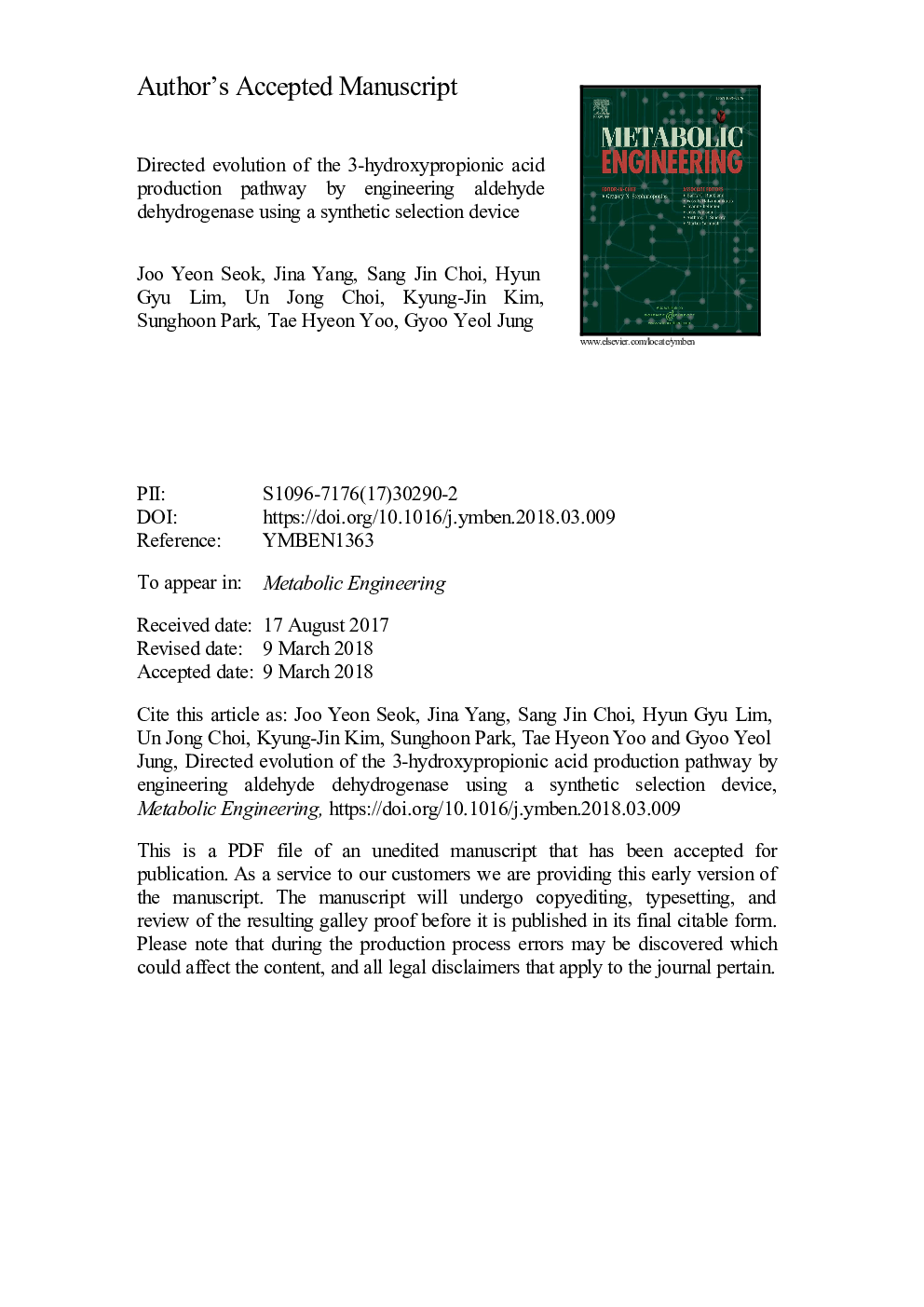| Article ID | Journal | Published Year | Pages | File Type |
|---|---|---|---|---|
| 6494071 | Metabolic Engineering | 2018 | 32 Pages |
Abstract
3-Hydroxypropionic acid (3-HP) is an important platform chemical, and biological production of 3-HP from glycerol as a carbon source using glycerol dehydratase (GDHt) and aldehyde dehydrogenase (ALDH) has been revealed to be effective because it involves a relatively simple metabolic pathway and exhibits higher yield and productivity than other biosynthetic pathways. Despite the successful attempts of 3-HP production from glycerol, the biological process suffers from problems arising from low activity and inactivation of the two enzymes. To apply the directed evolutionary approach to engineer the 3-HP production system, we constructed a synthetic selection device using a 3-HP-responsive transcription factor and developed a selection approach for screening 3-HP-producing microorganisms. The method was applied to an ALDH library, specifically aldehyde-binding site library of alpha-ketoglutaric semialdehyde dehydrogenase (KGSADH). Only two serial cultures resulted in enrichment of strains showing increased 3-HP production, and an isolated KGSADH variant enzyme exhibited a 2.79-fold higher catalytic efficiency toward its aldehyde substrate than the wild-type one. This approach will provide the simple and efficient tool to engineer the pathway enzymes in metabolic engineering.
Keywords
Related Topics
Physical Sciences and Engineering
Chemical Engineering
Bioengineering
Authors
Joo Yeon Seok, Jina Yang, Sang Jin Choi, Hyun Gyu Lim, Un Jong Choi, Kyung-Jin Kim, Sunghoon Park, Tae Hyeon Yoo, Gyoo Yeol Jung,
